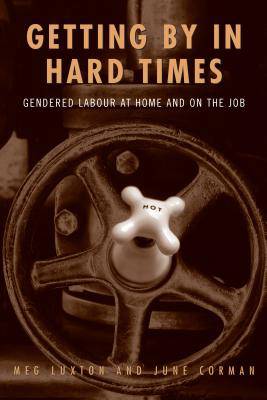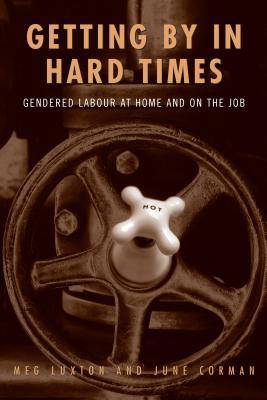
- Afhalen na 1 uur in een winkel met voorraad
- Gratis thuislevering in België vanaf € 30
- Ruim aanbod met 7 miljoen producten
- Afhalen na 1 uur in een winkel met voorraad
- Gratis thuislevering in België vanaf € 30
- Ruim aanbod met 7 miljoen producten
Getting by in Hard Times
Gendered Labour at Home and on the Job
June Corman, Meg LuxtonOmschrijving
Getting By in Hard Times describes the experiences of daily life for predominantly white, working class women and men during the period of "economic restructuring" begun in the 1980s. Luxton and Corman show how the shift from a pattern where women were full-time housewives and men were income earners, to one where women are increasingly income earners as well, is altering the experience of everyday life
Based on a case study conducted from 1980 to 1996, of households where one person was employed at Stelco's manufacturing plant in Hamilton, Ontario, the book examines how working class families make a living by combining paid employment and unpaid domestic labour. During this period of government cutbacks the loss of secure employment for men (as the steel plant cut its labour force by about two-thirds), combined with women's increasing participation in the labour force, resulted in lower standards of living, reduced income, and the imposition of more unpaid work on family households.
Getting By in Hard Times examines how growing insecurities undermined class politics while increasing gender, racial, and ethnic tensions. By focusing on the daily coping strategies of white working class women and men, the book shows the human face of changing gender, race, and class politics in Canada.
Specificaties
Betrokkenen
- Auteur(s):
- Uitgeverij:
Inhoud
- Aantal bladzijden:
- 360
- Taal:
- Engels
Eigenschappen
- Productcode (EAN):
- 9780802071477
- Verschijningsdatum:
- 25/08/2001
- Uitvoering:
- Paperback
- Formaat:
- Trade paperback (VS)
- Afmetingen:
- 153 mm x 228 mm
- Gewicht:
- 521 g

Alleen bij Standaard Boekhandel
Beoordelingen
We publiceren alleen reviews die voldoen aan de voorwaarden voor reviews. Bekijk onze voorwaarden voor reviews.











